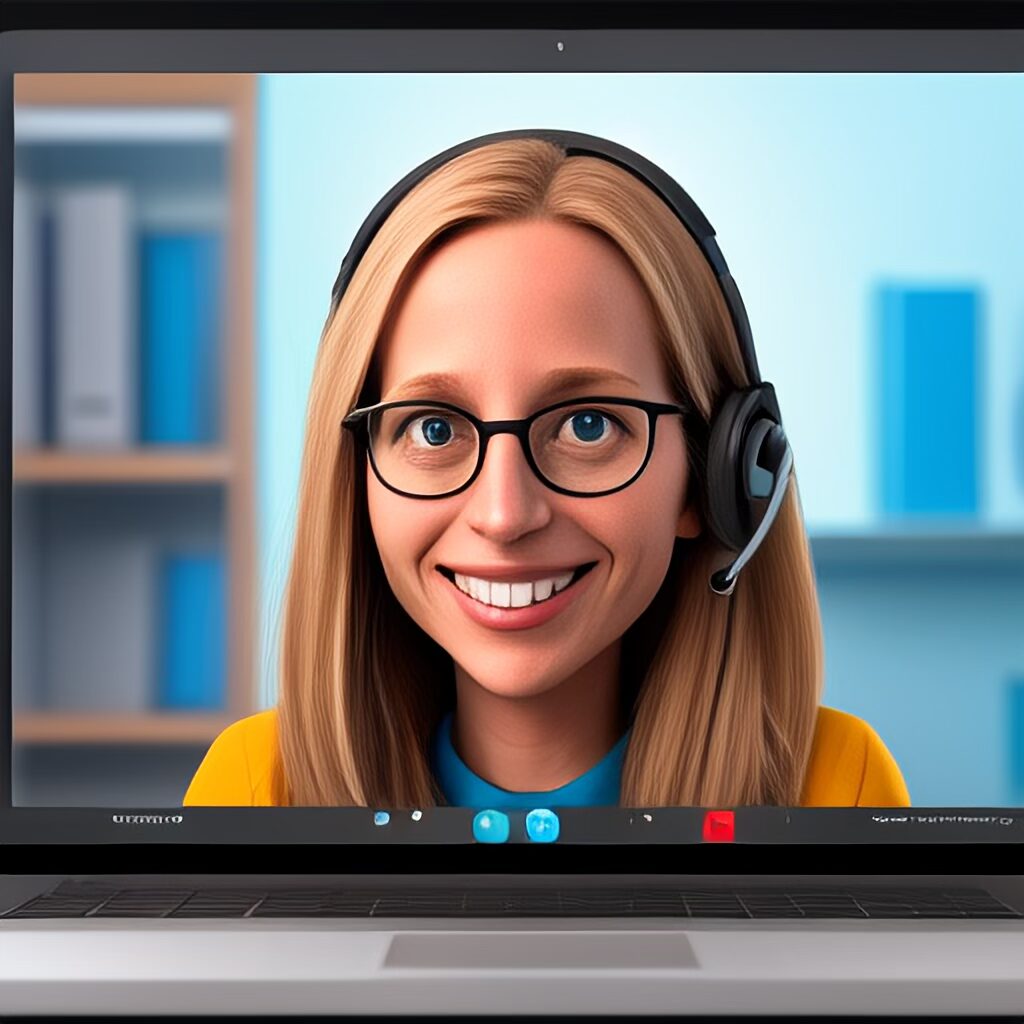Before COVID-19, most people were not familiar with online therapy, or ‘teletherapy,’ and it was almost unheard of as a way to support children with feeding or communication needs. In March 2020 I, like many people, had to change my way of working (and living) overnight. At the time I was working as a member of a complex needs team seeing children on hospital wards as well as in their homes and in a community clinic. All face-to-face work outside of the hospital stopped overnight and I found myself very quickly becoming familiar with teletherapy. Initially I struggled to imagine how teletherapy would work for the children and families I was supporting; however now that we are five years on, I am pleased to say, it worked (and continues to work) well!
Despite COVID-19 restrictions being lifted and health care and education services returning to pre-COVID-19 normality, many families and professionals, myself included, continue to view teletherapy as a powerful tool in supporting children’s development. In both my NHS and independent work, I offer teletherapy; and I see positive changes in children’s skills as a result of our video sessions. So I started to wonder, ‘does the research support my anecdotal evidence?,’ and the answer is ‘yes!’
What is Teletherapy?
“(Teletherapy) is the delivery of services using telecommunication and internet technology to remotely connect therapists and clients… for screening, assessment, intervention, consultation, and/or education. (Teletherapy) is an appropriate model of service delivery for… speech-language pathologists.”1
Teletherapy sessions with South Lakes Speech & Language Therapy occur through secure video connection and allow you and your child to receive feeding and/or communication therapy without the limitations of distance or situation.
Does Teletherapy Work? Yes!
When I talk with parents about teletherapy, by far the most common question they have is whether or not teletherapy is effective. I was pleased to find that in several studies, “researchers and clinicians have found that tele-speech therapy is an effective tool for improving access to high-quality services and a viable mechanism for delivering speech and language interventions.”2 Studies that looked specifically at using teletherapy with children with Autism and their families, found favourable outcomes and a positive impact3 with one study finding that “…services delivered via (teletherapy) were equivalent to services delivered face-to-face, and superior to comparison groups without (teletherapy) sessions.”4
The success story of teletherapy is replicated for a variety of patient groups; the American Speech-Language-Hearing Association (ASHA) looked at 40 peer-reviewed studies that confirmed that teletherapy produces outcomes that are as good as direct contact.5 Patient groups that ASHA found had a positive response to teletherapy include (but are not limited to) people with:6
- Feeding and Swallowing Difficulties
- Speech and Language Delays
- Articulation Difficulties
- Dysfluency (Stuttering)
- Autism
- Cerebral Palsy
- Cognitive-Communication Deficits
- Acquired and Tramautic Brain Injury
What Can I Expect from Teletherapy with South Lakes Speech & Language Therapy?
Teletherapy with South Lakes Speech & Language Therapy includes all of the same principles of face-to-face therapy and is conducted in essentially the same format as an in-person session. Depending on the needs of your child, a teletherapy session with South Lakes Speech & Language Therapy may include hands-on activities, interactive games, or mealtime observations and therapeutic food play. As with our face-to-face sessions, parent coaching is a key component of what we do, so you should expect to be an active part of your child’s teletherapy sessions including hands-on practice with therapeutic techniques and strategies to support your child’s development. During our session, we will ensure you feel confident using appropriate therapeutic techniques and strategies with your child so you can continue to use these techniques and strategies between sessions.
For more information about teletherapy and feeding and/or communication therapy for your child with South Lakes Speech & Language Therapy, please get in touch. We look forward to meeting you in person or on a screen!
- ASHA – Telepractice ↩︎
- Farmani E, Fekar Gharamaleki F, Nazari MA. Challenges and opportunities of tele-speech therapy: Before and during the COVID-19 pandemic. J Public Health Res. 2024 Feb 7;13(1):22799036231222115. doi: 10.1177/22799036231222115. PMID: 38333616; PMCID: PMC10851737. ↩︎
- Johnsson G, Bulkeley K. Practitioner and Service User Perspectives on the Rapid Shift to Teletherapy for Individuals on the Autism Spectrum as a Result of COVID-19. Int J Environ Res Public Health. 2021 Nov 11;18(22):11812. doi: 10.3390/ijerph182211812. PMID: 34831567; PMCID: PMC8620428. ↩︎
- Sutherland R, Trembath D, Roberts J. Telehealth and autism: A systematic search and review of the literature. Int J Speech Lang Pathol. 2018 Jun;20(3):324-336. doi: 10.1080/17549507.2018.1465123. Epub 2018 Apr 30. PMID: 29709201 ↩︎
- ASLTIP – Teletherapy: A Proven Way to Provide Speech and Langaueg Therapy… ↩︎
- ASHA – The Value of Telepractice in Speech-Language Pathology ↩︎


